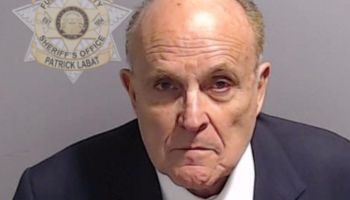The American Black Film Festival, or ABFF, recently marked its 16th year with a star-studded four-day run in Miami, Fla. The festival spanned June 20–23, and the expected turnout of 5,500 filmmakers, actors, executives, and fans was more than double the number of people on hand for the first ABFF. In addition to panels, workshops, and symposiums, the festival featured screenings of more than 30 films. During the 2012 event, admission to each was $12. Organizers also offered a Prestige Pass for $1,250 and a Marquee Pass for $650.
Initially known as the Acapulco Black Film Festival, on account of the Mexican city where the event was held from 1997 through 2001, the ABFF is “the leading film festival in the world for African American and urban content,” according to the official website. Over the years, the festival has screened more than 600 narrative, short-form, and documentary films, “rewarding and redefining artistic excellence in independent filmmaking,” according to organizers.
MUST READ: Mary J. Blige to Play Betty Shabazz in Film “Parallel Lives”
Sponsors for the 2012 fest included HBO—which runs a Short Film Competition—Gold Peak Tea, GMC, NBC Universal, and Nickelodeon. Actress Tracee Ellis Ross, known for her work on the comedy series “Girlfriends,” served as official ambassador. Among the films screened were “Beasts of the Southern Wild,” “Ties That Bind,” “Luv,” and “Raising Izzie.”
“It’s not exclusionary, but empowering,” co-founder Jeff Friday said, according to the Miami Herald.
Taking a broader look at the film industry, Friday told the website TheGrio.com that things haven’t much changed for black filmmakers in Hollywood, despite the festival’s success.
“Not only has the trajectory not changed, we’re actually pointing downward,” he said.
Part of the problem, he says, has been the collapse of Hollywood’s studio system, which has left a mere eight companies in charge of deciding which films earn widespread theatrical release.
MUST READ: Janet Jackson To Produce Transgender Documentary
“So I don’t think the culture of filmmaking has changed,” Friday told TheGrio.com. “I see a lot of great movies. And if you come [to the ABFF] this week, we’ve got a lot of very diverse stories – a lot of them. Will they ever make it to the, to a theater near you? Probably not. But I’m hoping that the television market will remain healthy and we’ll see our films. And at the very least, we’ll see our films in television, and then followed by, you know, successful digital, digital releases.”
Want to Keep Up With NewsOne.com? LIKE Us On Facebook!















